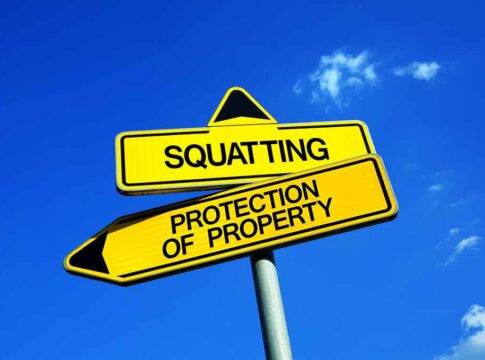Meghan McIntyre, a homeowner in Massachusetts, discovered the hard way that her state’s laws provide unexpected legal protections for squatters, despite having to pay for a property she is unable to access while the courts rule in favor of a former resident’s daughter. In order to remove squatters, property owners must adhere to formal eviction procedures and are not permitted to use “self-help” techniques like changing locks. Recent legislation in a number of states, including Florida, New York, and Georgia, has strengthened property owners’ rights against squatters.
Massachusetts Squatters’ Rights Explained
Massachusetts property laws contain provisions that can surprise and frustrate homeowners dealing with unwanted occupants. Unlike many states that have reformed their laws to protect property owners, Massachusetts continues to maintain legal frameworks that can benefit squatters in certain situations. The state allows for adverse possession claims after 20 years of continuous occupancy, a process through which a squatter can legally claim ownership of property they’ve occupied without permission.
Squatters must meet five specific requirements to pursue an adverse possession claim: hostile/adverse possession (occupying without permission), actual possession (physically living on the property), open and notorious possession (visibly occupying the property), exclusive possession (not sharing with others), and continuous possession (uninterrupted for the full 20-year period).
NYC homeowners who lost their homes to squatters sat down with CBS.
Some of them are now in debt for paying electricity and maintenance bills for the squatters.
Squatters turn into tenants after 30 DAYS.
After that timeframe, homeowners will be arrested if they turn off… pic.twitter.com/jOKXVcR4f3
— End Wokeness (@EndWokeness) April 5, 2024
Legal Distinctions That Favor Squatters
One of the most frustrating aspects for Massachusetts property owners is the distinction between squatting and trespassing. While trespassing is considered a criminal offense that police can address immediately, squatting is treated as a civil matter that requires court proceedings to resolve. This distinction often leaves property owners with limited options for quick resolution, effectively giving squatters time to establish a presence on the property.
“If you find a stranger in your home, you call the police. You tell them that they’re trespassing. But if they’ve been there a week, a month, three months—six months—then I think the idea is that some rights have been acquired, and you would have to go through the eviction process.” – Morjieta Derisier
Further complicating matters is the state’s prohibition against “self-help evictions,” which makes it illegal for property owners to change locks, remove a squatter’s belongings, or cut off utilities without a court order. Violating these prohibitions can result in legal penalties for the property owner, effectively leaving them in a position where they must cover expenses while being denied access to their own property.
Squatters have more rights than homeowners now. https://t.co/VdSLH1pVeu
— Ian Miles Cheong (@stillgray) December 22, 2024
The Lengthy Eviction Process
For Massachusetts property owners dealing with squatters, the legal eviction process presents significant challenges. First, owners must serve squatters with a “notice to quit,” officially demanding they vacate within a specified timeframe. If squatters refuse to leave, the owner must file a formal eviction lawsuit, attend court hearings, and wait for a judgment—a process that can stretch from one month to an entire year.
Throughout this lengthy process, property owners like Meghan McIntyre often find themselves in the difficult position of paying mortgage, taxes, insurance, and sometimes utilities for a property they cannot access or use. These financial burdens compound the frustration of dealing with squatters who may be causing damage to the property or preventing its intended use.
Other States Are Taking Action
While Massachusetts maintains laws that can favor squatters in certain situations, several states have recently enacted legislation designed to restore balance to property rights. Florida’s new law, effective since July 1, 2023, establishes criminal charges for squatting and allows property owners to request immediate assistance from law enforcement to remove unauthorized occupants.
New York’s 2025 budget includes significant changes to state law that expressly establish that squatters are not considered tenants, effectively denying them tenant protection. Georgia’s Squatter Reform Act requires individuals to provide proof of legal residency within three days or face potential arrest. These legislative changes reflect growing recognition nationwide that property owners need stronger protections against unauthorized occupants.


